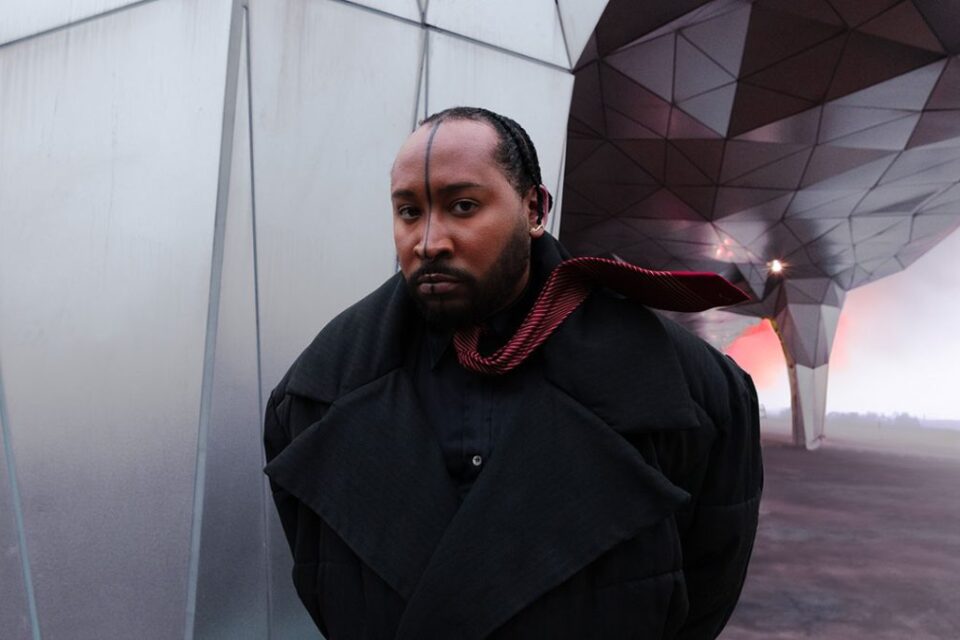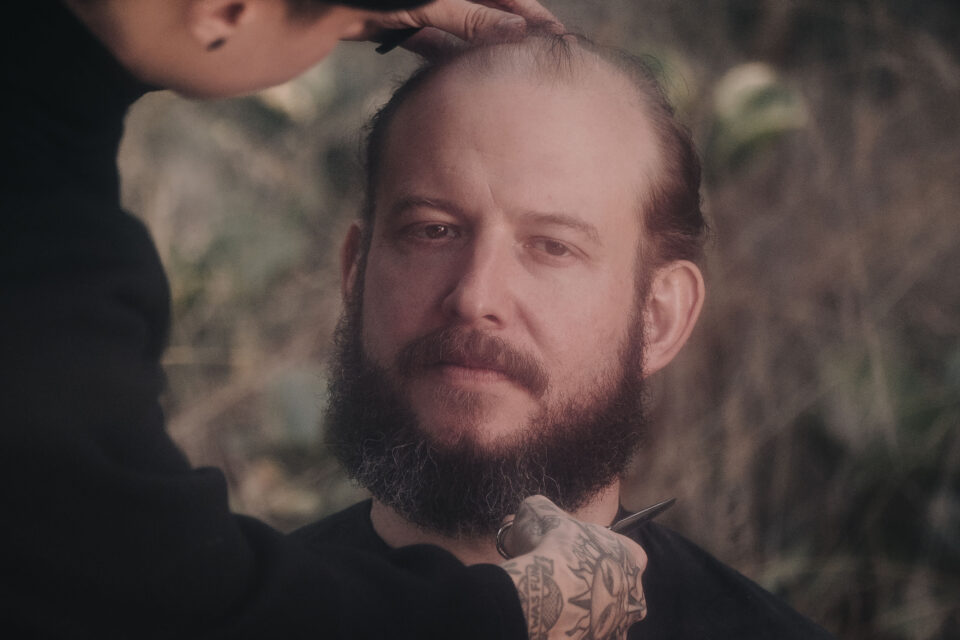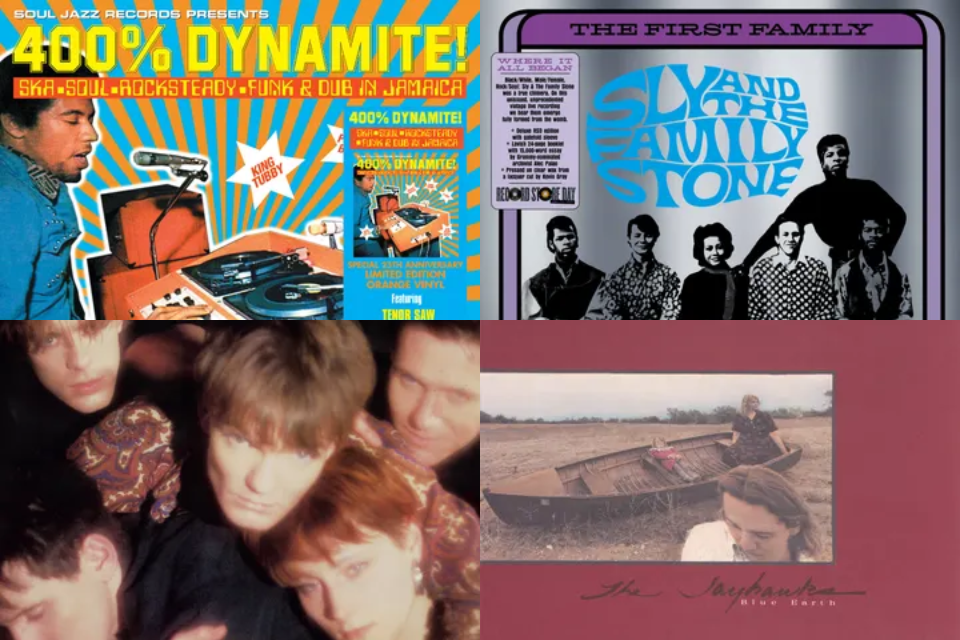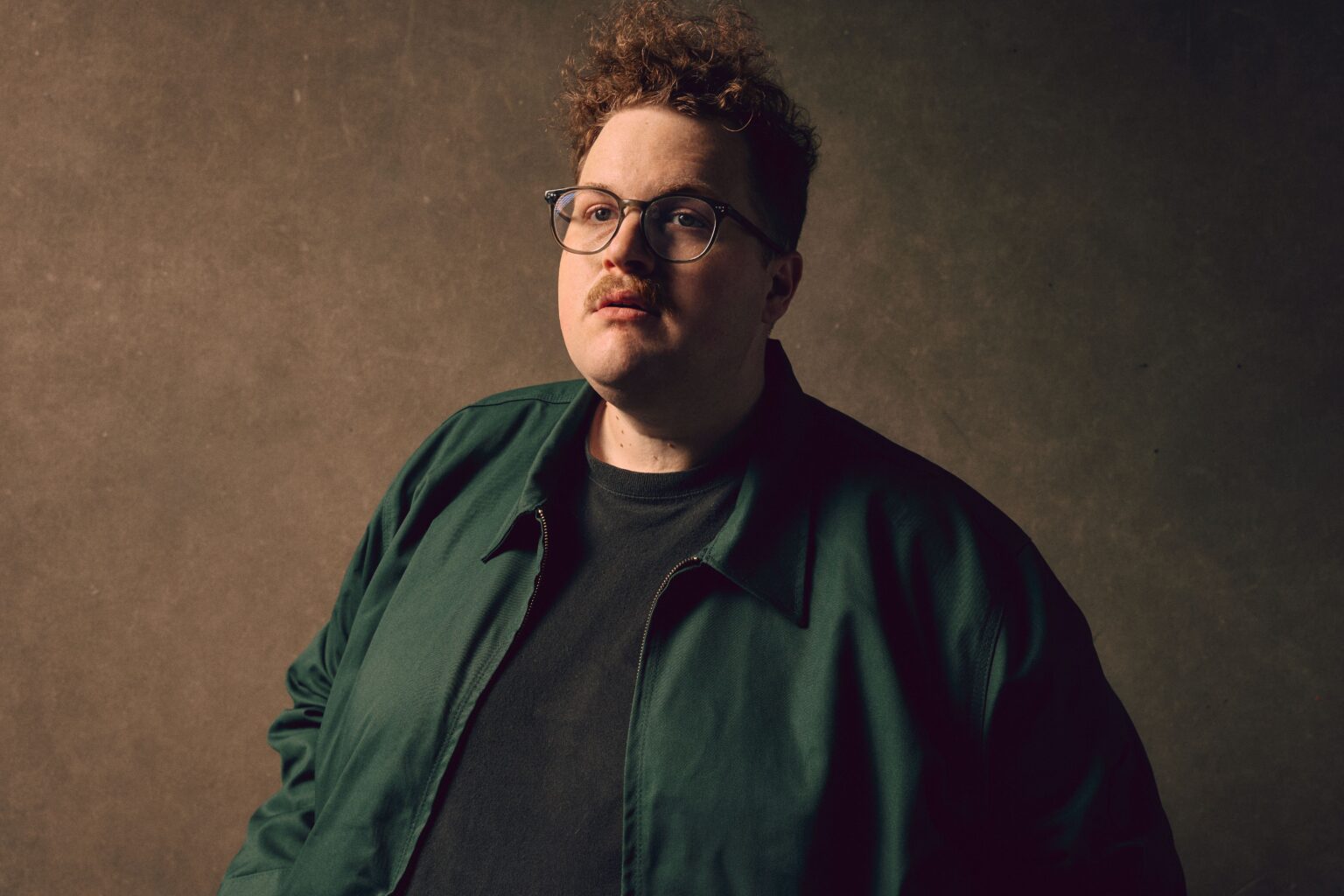“The last four years have been weird,” Bartees Strange tells me in a Zoom call. That may be an understatement. The indie artist had played on Jimmy Kimmel Live! the night before our chat to debut his song “Backseat Banton” from our Record of the Week, Horror. Plenty of artists have viral moments that flash them in the spotlight for a moment and then back down again in the content cycle, but Strange had something more substantial happen.
In 2021, Strange independently released an album, Live Forever, and he captured more than a viral moment — the entire album retained long-term success. At the end of the year it was on everyone’s Year End List. Multiple indie record labels were bidding for him to sign to them. Live Forever became seemingly the independent release of the year.
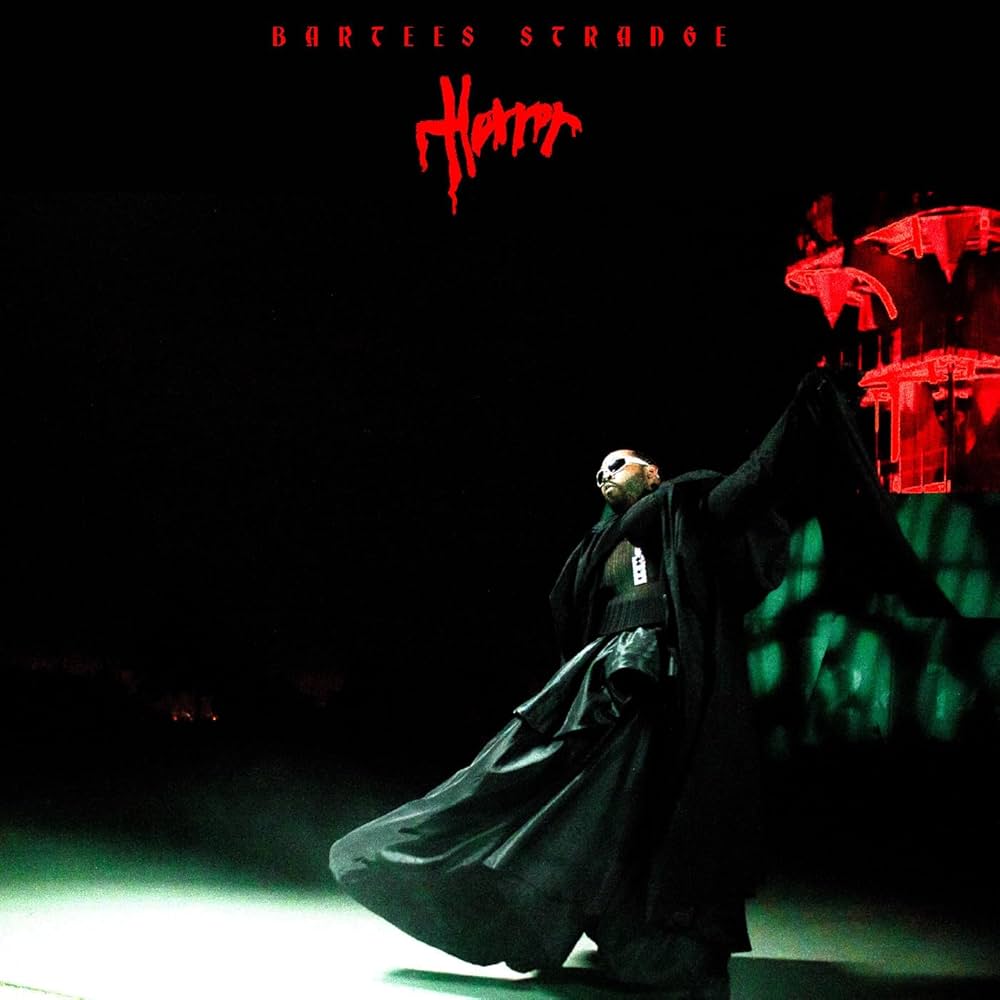
Strange ultimately signed to 4AD, home of The National, a band also key to his rise. In 2020 he released an EP of The National covers. Signing to their label was a sign that he officially made it and had a seat at the table. In interviews and on tour he was so genuinely excited and grateful to be in the company of his peers in indie rock, like Justin Vernon and Lucy Dacus. On his 4AD debut, Farm to Table, he sang, “I’m in L.A., I’m with Phoebe, I’m a genius, damn/I’m in Chitown, I’m with Lucy, I just got the stamp/Hit up Courtney, that’s my Aussie, I already stan/ I’m on FaceTime, I’m with Justin, we already friends.” The rise from musical any-man to household name of the indie scene is few and far between and it’s set up a new litany of changes that Strange deals with directly on Horror.
On the song, “Wants Needs,” he sings, “I need you, too, when it’s all said and done.” He tells me, “A lot of people hear that and think it’s a love song. It’s really a pleading song for listeners to like me.” Four years ago he yearned for fans, for respect and support as a musician. He got them. Achieving his dream now means dealing with the terror of maintenance throughout his career. Strange has managed through community and experiencing the horrors of life, whatever they may be, is central to this album.
“I love horror movies.” Strange explains. “You can watch something scary by yourself and it scares the shit out of you, but if you watch it with a movie theater of people, it becomes kind of funny. The things that are were so scary in life just become a part of it.”
On working with Jack Antonoff
I met Jack at a festival. I thought I had finished the album. He invited me up to his house and he was like, “You could turn this album in tomorrow and it would be great, or we could do another layer.” And I was like, “If you were anyone else I would say no, but it’s you so of course.”
He’s so extremely generous and nobody works harder. He also really gives a shit. Like, I became friends with the guy. I was at his wedding. It’s crazy when someone like that takes an interest in your personal life and wants you to be a part of their life.
He runs a small business. He doesn’t run a recording empire. He runs a mom and pop shop plumbing operation where he’s just like, “Hey, what’s the problem? Let’s fix it.” That approach makes him very easy for people to work with because he doesn’t have much ego. He’s not trying to maintain a crown, he just really cares about his artists and the music he is working on.
On Rick James and Neil Young inspiring him to be genre-fluid
I have a real deep interest in music history, and it’s all because of one anecdote.
So, Rick James played in Neil Young’s band. And actually, Neil Young played in Rick James’ band. It was like, Rick James, Neil Young and one of the guys from Crosby, Stills and Nash were all playing together and working together. Then Rick fled the U.S. because he didn’t want to get drafted. Then, when they came to the US to tour he got thrown in the brig. The band went on to do huge things. One guy starts Buffalo Springfield. Neil Young becomes Neil Young. Rick James is in the brig and he’s telling the other guys there, like, “I was in his band!” and everyone is like, “Bullshit. You don’t know him.”
And then he comes out and he becomes Rick James. It made me think about when George Clinton and Parliament were making all those records and Fleetwood Mac was hearing those records. Prince heard those records. You know, there might be genre separations among listeners but with musicians, we just want to make the best songs. We play off each other.
That’s why I structured the record the way I did. The first two songs are like Parliament. Bootsy, Brothers Johnson, big riffs. Then it moves to a Fleetwood Mac cut. Then it slides into me. I was trying to marry those loose sonic ideas with history.
On the big idea of Horror
I start the album with “Too Much.” It was the first song I wrote for the album and the canary in the coal mine for the album sonically. There is a whole world of songs attached to the song. I thought it would be a cool way for the listener to walk into the album, cause that is how I walked into the album.
The song is about being overwhelmed. And the disparate moments in my life where I am like, “Am I doing this right?” That is really the big question for the album, it’s like, “Am I doing life right?” How do you know?

